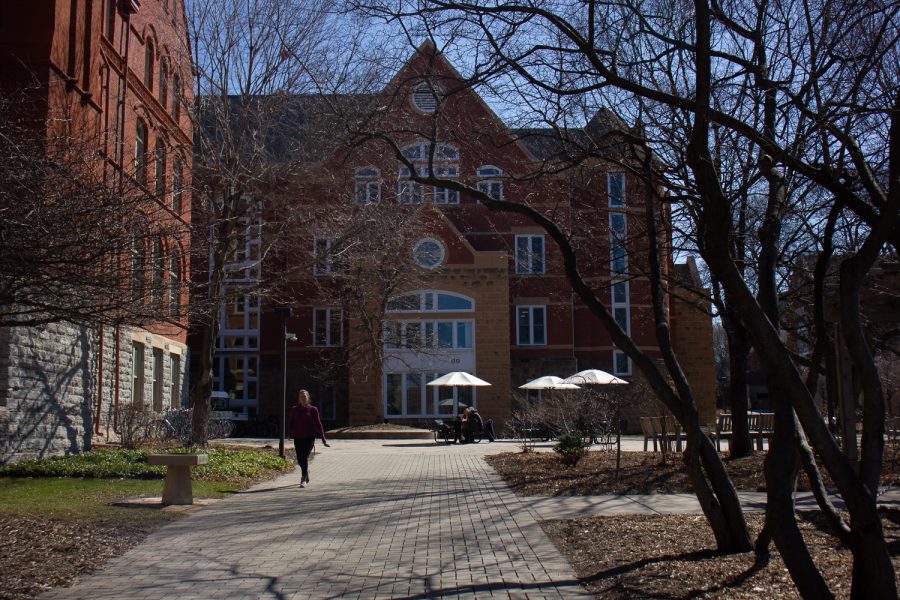Mac looks to finalize strategic planning themes
DeWitt Wallace Library. Photo by Karsten Beling ’22.
April 14, 2022
After six months of conversation surrounding Macalester’s new strategic plan, the college is moving towards the next steps. President Suzanne Rivera, Provost Lisa Anderson-Levy and the strategic planning champions hosted the final listening session on Monday, April 11. Champions then engaged in a two-day retreat on April 13 and 14, where they began to draft a tangible document of their ideas.
Currently, the strategic plan has been divided up into four “themes:” to reimagine the residential liberal arts experience, to build sustainable and enduring approaches to access and equity, to fuel community well-being and flourishing and to create signature “Mac experiences” for students. Last week, each of these themes had a dedicated listening session. This session served as a final feedback meeting to bring the themes together.
At this session, the president and other administration made clear that these themes, while promising to them, were still in draft form and could evolve as the strategic planning process advances. The final strategic plan will not be submitted until at least October 2022.
“I recognize that planning over the course of a year is a really long time,” Rivera said. “But I and the rest of the members of the senior leadership team really felt like in order to do this justice as a community, that it was important that this process be one in which people could be deeply engaged and could connect with each other around the process of dreaming about the institution’s future.”
The listening session, as well as the planning process, is open to feedback from everyone in the Macalester community. Current students, alumni, faculty, staff and parents make up the strategic planning committee.
“We have taken a very intentionally inclusive approach to this strategic plan,” Rivera said. “We could have done the more traditional thing … but we felt that that didn’t emphasize Macalester’s values, which really emphasize the participation and belonging of all members of this community.”
Strategic plans aren’t uncommon in higher education, and many schools are reassessing their initiatives and values in the wake of the COVID-19 pandemic. Nationally, colleges will face rising tuition costs and a demographic shift, which means less students in college in the coming years.
“We will need to be ready to support [future] students, because those who are applying to college are going to be different from the populations who’ve applied in the past,” Rivera said. “They’re going to be more Latina and Latino. They’re going to be more first generation than ever before. If we’re not ready to provide a great educational experience to the students who come to us, we’re not going to do well.”














